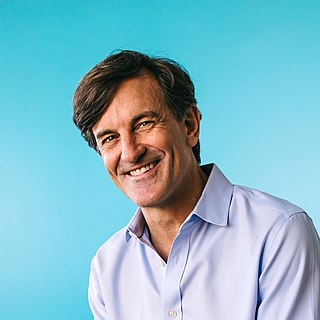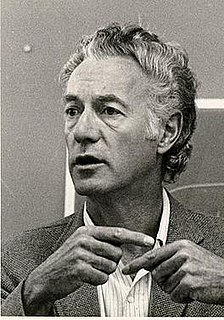A Quote by Roger Altman
The long-standing wisdom that everyone wins in a single world market has been undermined. Global trade, capital flows, and immigration are declining.
Related Quotes
Fair Trade is a market-based, entrepreneurial response to business as usual: it helps third-word farmers developing direct market access as well as the organizational and management capacity to add value to their products and take them directly to the global market. Direct trade, a fair price, access to capital and local capacity-building, which are the core strategies of this model, have been successfully building farmers' incomes and self-reliance for more than 50 years.
Our great civilization, here in America and across the civilized world has come upon a moment of reckoning. We've seen it in the United Kingdom, where they voted to liberate themselves from global government and global trade deal, and global immigration deals that have destroyed their sovereignty and have destroyed many of those nations.
During the last two centuries, there have been many deflations throughout the world. Almost all of them have been good ones precipitated by technological innovation, rising productivity, global capital flows, and sustained economic growth. If farm mechanization cuts the price of wheat, you get a rising living standard. This is good.
I want completing the single market to be our driving mission. I want us to be at the forefront of transformative trade deals with the US, Japan and India as part of the drive towards global free trade. And I want us to be pushing to exempt Europe's smallest entrepreneurial companies from more EU directives.
[Barack] Obama, for example, he has not given up on cap-and-trade. Now, he has not been able to pass cap-and-trade, but cap-and-trade is all about redistribution of wealth in a global basis - taking money out of this country and giving it to third-world countries on the other end of the ocean. And that is redistribution of wealth in a global basis. It's fundamental Marxism.
In the 1990's, a time of corporate capital's global ascendancy, the mildest restraints on its prerogatives have been peremptorily rejected. Automatically, under this designation, measures to protect national cultural industries, for example, have been ruled unacceptable infringements of "free trade."
I don't want to overvalue Donald Trump as some historical rupture, and to admit that I do think Trump is an indication of a fairly profound change. But the change started a while ago, and it has taken a while to appear. Global capital, particularly western capital, has been in decline since the late 60s and early 70s. The softness appeared in the 60s, the profit rate fell off the table in 1972 - 73, and there have been very uneven recoveries. This has been an ongoing weakening of the productive economy of accumulation at a global scale, of capital's capacity to expand.


































